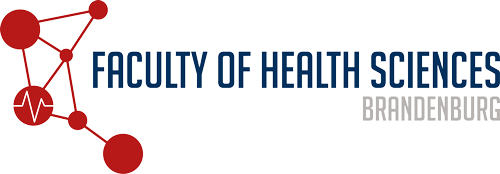New Findings on the Use of AI in Medicine

The use of artificial intelligence (AI) has already proven to be extremely efficient when making medical decisions. However, there has not yet been any systematic investigation into whether machine-assisted decisions are always in the interests of patients. Christoph Wilhelm from the Harding Center for Risk Literacy at the Brandenburg Faculty of Health Sciences has devoted himself to this question.
Joint media release by the Faculty of Health Sciences at the University of Potsdam, the Brandenburg Medical School Theodor Fontane and the Brandenburg University of Technology Cottbus-Senftenberg, 19.12.2024
The use of artificial intelligence (AI) has already proven to be efficient in medical decision-making. Until now, however, there has been no systematic investigation into whether machine-assisted decisions are effective in the interests of patients. Christoph Wilhelm from the Harding Center for Risk Literacy at the Faculty of Health Sciences Brandenburg has addressed this question in a systematic review study, the results of which have now been published in The Lancet Regional Health – Europe, a renowned offshoot of the medical journal The Lancet. Together with other researchers, he was able to show that only a few of the studies they analysed adequately examined the patient-relevant advantages and disadvantages of AI-supported treatment in terms of quality. There is an urgent need for research in this area to ensure the well-being of patients.
Together with Prof. Dr Anke Steckelberg from the University of Halle and Dr Felix G. Rebitschek, Head Research Scientist of the Harding Center, Christoph Wilhelm evaluated over 2,500 studies on AI in medical treatment. This involved analysing interdisciplinary articles from the past ten years that deal with AI-supported decisions in healthcare. Ultimately, only 19 publications contained the required information on patient-relevant benefits and harms. The research team was able to prove that the vast majority of the analysed studies were mostly concerned with the efficiency and performance of the AI systems used, but usually did not make any statement about patient relevant outcomes. Christoph Wilhelm explains that his findings ‘emphasise the urgent need for rigorous assessments of the benefits and harms of integrating artificial intelligence into medicine’.
However, the team also collected some positive examples. In 2017, Dr David Shimabukuro and colleagues showed that an AI system for predicting severe blood poisoning was able to reduce the mortality rate of patients from 21.3% to 9%. In another study, an AI was able to assign personalised therapies to depression patients and thus achieve a greater improvement in their symptoms compared to standard therapy. Overall, however, these are exceptions. According to Wilhelm, compliance with strict methodological standards and transparent guideline-based reporting are essential to ensure the long-term and meaningful integration of AI into medicine.
The use of AI in medicine has increased enormously in recent years. This is due to technological advances in data collection and processing as well as machine learning in general. Moreover, the large volumes of data that are regularly generated in research and clinical operations also make the use of AI extremely attractive. AI systems can sort and analyse this data – such as patient records, genome sequences or clinical studies – much more effectively and examine it for patterns. This process has been further accelerated by the Covid-19 pandemic, explains Christoph Wilhelm: ‘AI has played a central role in vaccine development, for example for mRNA technologies, and in the analysis of epidemiological data.’
The study on the use of AI in medicine on the Internet and the Harding Center for Risk Literacy:
Media contact: Florian Dönau / Antje Horn-Conrad
University of Potsdam, Press and Public Relations Department
Phone: +49 331 977-1474; e-mail: presse[at]uni-potsdam.de
Photo: Jacob Wackerhausen via Getty Images
